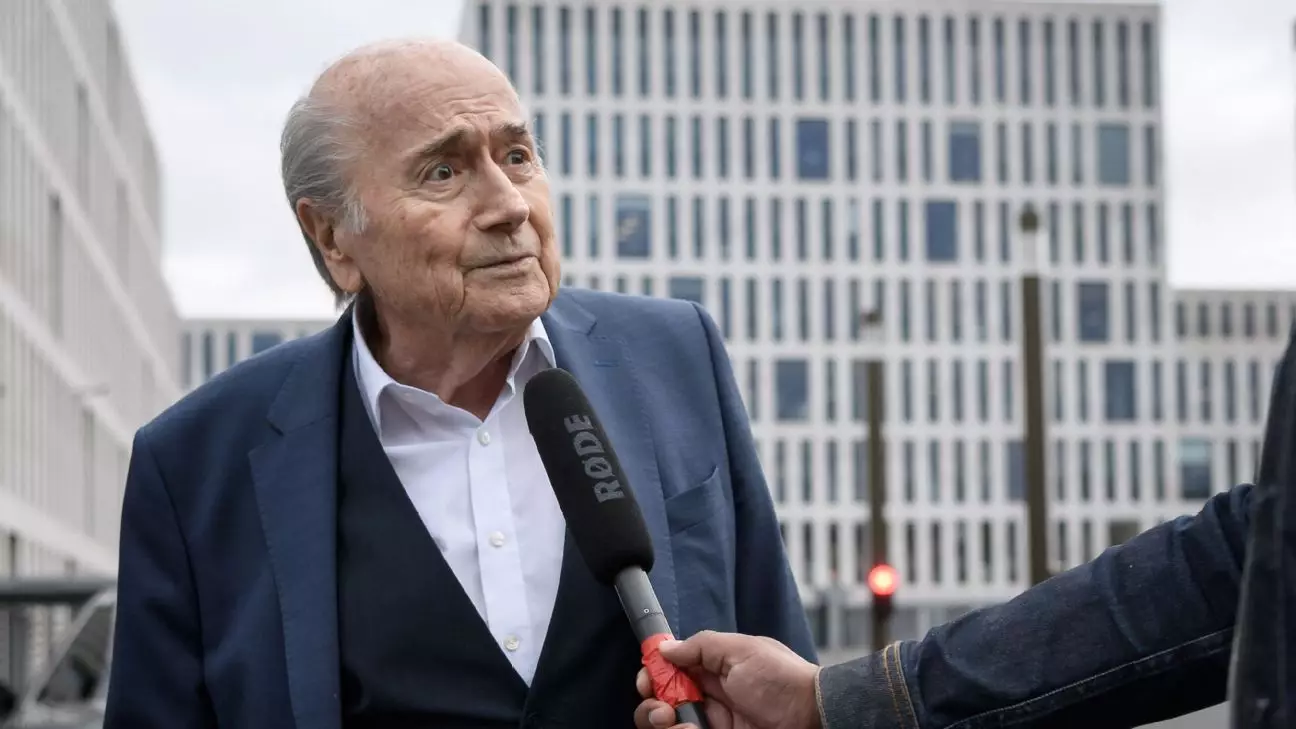The world of soccer has long been marred by allegations of corruption, and few figures embody this turbulence as starkly as former FIFA president Sepp Blatter and his protégé Michel Platini. Their recent appearance in court for a second trial over a controversial payment initiated discussions that transcend mere legalities—they reflect a deeper, systemic issue within the governance of international sports. As figures who once shaped the future of soccer, both men now find themselves entrenched in a legal battle that has stretched into its tenth year, marking a prolonged saga that raises questions about integrity and accountability in the sport.
The Case Resurfaces
Blatter and Platini returned to the courtroom nearly three years after an initial trial where they were acquitted of fraud, forgery, and misappropriation of funds. This time, however, the Swiss federal prosecutors have decided to appeal the previous verdict, thus reopening old wounds that many believed had begun to heal. The crux of the case revolves around a payment of 2 million Swiss francs—approximately $2.21 million—made to Platini in 2011, for advisory work dating back to a decade earlier. During the trial, Blatter vehemently denied the allegations, asserting, “When you talk about falsehoods, lies and deceptions, that is not me.” This insistence on his innocence, even at the age of 88, echoes through the courtroom as a poignant reflection of his enduring defiance.
The Nature of Their Defense
Central to Blatter and Platini’s defense is the assertion of a “gentleman’s agreement” regarding unpaid salaries. They maintain that this understanding legitimized the controversial payment, brushing aside allegations of unlawful enrichment and misconduct. Yet this narrative faces skepticism, particularly after federal prosecutors argued that the financial transaction had irreparably harmed FIFA’s assets. The contrasting narratives of entitlement versus deception underscore the complexities within FIFA’s financial dealings and governance structures. Both defendants claim innocence but fail to resonate with an audience that has become increasingly disillusioned with the ethics of those in power.
The media’s portrayal of this case significantly influences public perception, in a sport where transparency is often obscured. The initial outrage that erupted following allegations of widespread corruption within FIFA in 2015 has evolved into an ongoing discourse about sports governance in general. Each new detail surfacing from the trial brings forth questions about what accountability entails in the realm of international sports. Public interest remains high, but with fatigue stemming from years of scandals, there is a sense of disillusionment juxtaposed against a desire for justice.
The implications of this trial extend beyond Blatter and Platini; they highlight a broader concern regarding governance in football’s highest echelons. Their legal troubles not only tarnished their reputations but also had far-reaching impacts on FIFA and UEFA, shaping the landscape of global soccer politics. The ousting of both figures eliminated powerful leaders from their respective organizations, creating a vacuum filled by a new generation of officials grappling with the evolving demands for reform and ethical governance. The trial serves as a reminder of the ongoing challenges that remain as soccer seeks to regain credibility and restore trust among its global fanbase.
A Tale of Two Fates
Examining the differing trajectories of Blatter and Platini post-scandal offers a compelling view of their legacies. While Platini managed to have his ban lifted in 2019, allowing some reintegration into the sports community, Blatter remains exiled from soccer until 2028—an exile that seems to confirm the severity of the consequences following the ethics prosecution related to management bonuses from World Cups held in 2010 and 2014. This disparity exemplifies how the repercussions of corruption can echo through the lives and careers of those embroiled, leaving them to grapple with the ghosts of their past decisions.
Looking Ahead: The Future of Integrity in Soccer
As the second trial progresses, anticipation looms over March 25, when the verdict is expected. Regardless of the outcome, the saga of Blatter and Platini will undoubtedly continue to resonate as a cautionary tale within sports management. The trial is not just a moment of reckoning for the two individuals but also an opportunity for FIFA and other global sports organizations to confront their historical shortcomings. Only through transparency and decisive action can the integrity of soccer be salvaged and the sport redeemed in the eyes of a disenchanted public. Whether or not Blatter and Platini are found guilty, the long shadows of their actions will likely influence future policies and practices for years to come.

